PT Cruiser?
$11,800. That’s the price for a 2008 Chrysler PT Cruiser down at my local Chrysler dealer. Throw in the “Refuel America” $2.99 per gallon guarantee into the equation and you end-up with a pre-tax, tag, title price right around $10,200. Not bad. Not bad at all. Then again, is it? There are a lot of factors to consider when approaching any of the bargain basement cars currently on offer during this, Detroit’s [most recent] dark days. Join me as we journey down the PT-shaped rabbit hole…
If you're not an enthusiast, and simply want a 'keeper' car, the $10k Cruiser may be a great deal. What’s that you say? It’s going away? Well exactly. There are a lot of pluses for soon-to-be-defunct, less popular cars like the PT Cruiser that go far beyond the initial purchase price.
A long model run usually translates into a lot of easily obtainable spare parts, from multiple sources. The nearby parts store or junkyard will likely have replacements available for the eight year-old PT in duplicate or even triplicate. The PT Cruiser will also outdo recent entrants like the Toyota Yaris, Nissan Versa and Honda Fit when it comes to parts cost. For transplanted customers who have been beholden to the dealer for a $500 repair, that would cost maybe $150 in a mainstream Detroit iron, this is a weighty consideration.
All things being equal, a long model run also has the advantage of offering far fewer defects 'on average' than the latest and greatest models. A car that's been built a million times over has effectively given the supplier and the manufacturer plenty of opportunity to improve the car's design and reduce defects.
[Note: this isn't always the case. Google 'engine sludge' or 'transmission issues' and you'll see a long list of both domestic and transplant products that failed to make the grade, either initially or over time. However a quick visit to an enthusiast's site for your car (Google the model and add 'enthusiast' to the search) or owner's review sites like TrueDelta can tell you all you really need to know about a vehicle's true quality.]
Then there’s the double whammy of depreciation and gas cost.
For a car like the PT Cruiser, depreciation can be an absolute killer. As of writing, a PT Cruiser will lose an estimated 63 percent ($9,644) of it's retail value over five years. That’s far more of a hit than new models like the Yaris ($3,960), or Versa ($5,059), or the Fit ($5,152). For those who keep their rides for five years, the Intellichoice site is a good place to figure out your true costs of ownership, including depreciation.
If you're one of the wiser souls who decides depreciation should be minimized at all [non] costs, you’ll find that a 10-year ownership period will reduce this difference by at least two-thirds. As common sense suggests, when it comes to depreciation, it's the keeper who usually comes out ahead.
There’s a lot anyone can do to minimize their vehicle’s depreciation. Keep it, clean it, use high quality parts, drive conservatively and know your car by joining an enthusiast's group. But gas cost is a far, far stickier wicket.
The PT Cruiser may be seen as frugal wee beasties, but a 19 city and 24 highway mpg rating puts it far behind on the other three competitors. If you keep a PT for 100k miles and drive evenly between the city and highway, you’ll spend $18,605 on gas (assuming $4/gallon). That is $6,105, $4,320 and $5,490 more than the Yaris, Versa and Fit. Double the duration and your gas costs may outweigh any other single cost. Even depreciation. With gas supply on a perpetual plateau and demand only going up, this is a real deal breaker for those who’ve changed their fuellish ways.
Finally, there’s insurance. An older and more conservative car with a strong safety rating will usually do far better here than a fashionable car that appeals to a riskier audience. In this sense, the PT is good news. A car like the PT Cruiser A) generally appeals to conservative and mature drivers B) offers pretty good safety ratings, and C) and requires cheap replacement parts (as mentioned). Most folks will simply call their insurance company and get a quote. That's fine. But being on the right side of these three rankings can make a big difference on the bottom line.
So, for a retiree who drives sparingly, a brand new PT Cruiser is an excellent value. For an enthusiast, the Fit and Versa are the more fun vehicles to drive. If you look at cars as an overall economic proposition over a relatively short time period, the Yaris is probably a better bet. Personally I’d pick a VW Rabbit. But that’s an article for another day.
More by Steven Lang
Latest Car Reviews
Read moreLatest Product Reviews
Read moreRecent Comments
- Redapple2 Love the wheels
- Redapple2 Good luck to them. They used to make great cars. 510. 240Z, Sentra SE-R. Maxima. Frontier.
- Joe65688619 Under Ghosn they went through the same short-term bottom-line thinking that GM did in the 80s/90s, and they have not recovered say, to their heyday in the 50s and 60s in terms of market share and innovation. Poor design decisions (a CVT in their front-wheel drive "4-Door Sports Car", model overlap in a poorly performing segment (they never needed the Altima AND the Maxima...what they needed was one vehicle with different drivetrain, including hybrid, to compete with the Accord/Camry, and decontenting their vehicles: My 2012 QX56 (I know, not a Nissan, but the same holds for the Armada) had power rear windows in the cargo area that could vent, a glass hatch on the back door that could be opened separate from the whole liftgate (in such a tall vehicle, kinda essential if you have it in a garage and want to load the trunk without having to open the garage door to make room for the lift gate), a nice driver's side folding armrest, and a few other quality-of-life details absent from my 2018 QX80. In a competitive market this attention to detai is can be the differentiator that sell cars. Now they are caught in the middle of the market, competing more with Hyundai and Kia and selling discounted vehicles near the same price points, but losing money on them. They invested also invested a lot in niche platforms. The Leaf was one of the first full EVs, but never really evolved. They misjudged the market - luxury EVs are selling, small budget models not so much. Variable compression engines offering little in terms of real-world power or tech, let a lot of complexity that is leading to higher failure rates. Aside from the Z and GT-R (low volume models), not much forced induction (whether your a fan or not, look at what Honda did with the CR-V and Acura RDX - same chassis, slap a turbo on it, make it nicer inside, and now you can sell it as a semi-premium brand with higher markup). That said, I do believe they retain the technical and engineering capability to do far better. About time management realized they need to make smarter investments and understand their markets better.
- Kwik_Shift_Pro4X Off-road fluff on vehicles that should not be off road needs to die.
- Kwik_Shift_Pro4X Saw this posted on social media; “Just bought a 2023 Tundra with the 14" screen. Let my son borrow it for the afternoon, he connected his phone to listen to his iTunes.The next day my insurance company raised my rates and added my son to my policy. The email said that a private company showed that my son drove the vehicle. He already had his own vehicle that he was insuring.My insurance company demanded he give all his insurance info and some private info for proof. He declined for privacy reasons and my insurance cancelled my policy.These new vehicles with their tech are on condition that we give up our privacy to enter their world. It's not worth it people.”



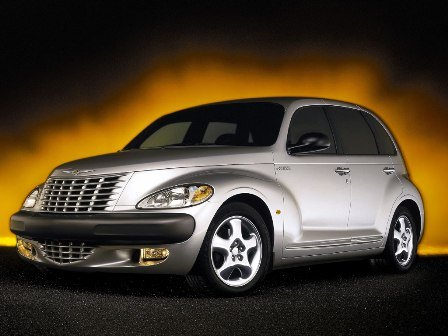















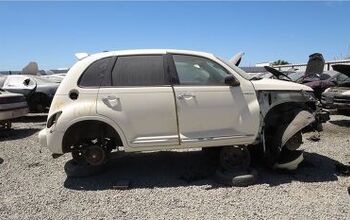
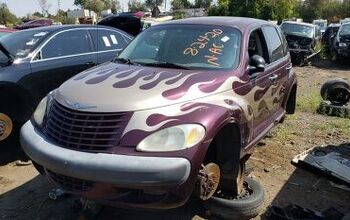
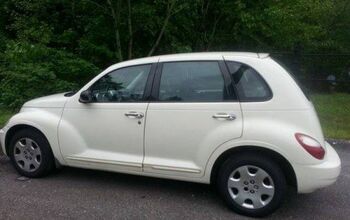
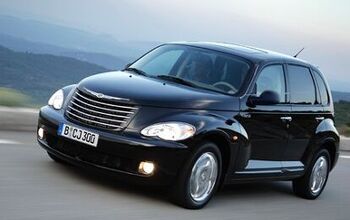
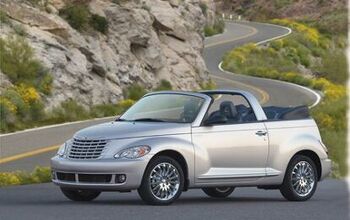


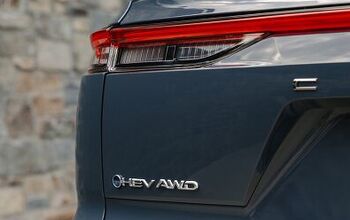







Comments
Join the conversation
I have a 2008 pt cruiser touring model with automatic transmission. I've only had it for two weeks at first I loved it. It's a comfortable ride and you can do so many things with it. Then one evening I noticed my headlights were flickering. The dash board too. They even went totally out at one point and then came back on. I never know when this is going to happen. It's very scarey driving at night and the lights go out, but a girls gotta work right. I've taken it to the dealer who cannot find the problem so I'm stuck driving it this way. So much for having a factory warranty. If I had any money I'd get rid of it immediatly and never own another.
Very sorry all in the US the best model's only available here in Europe http://www.edmunds.com/news/column/carmudgeon/72740/article.html. 40+ MPG, great performance and a Mercedes engine